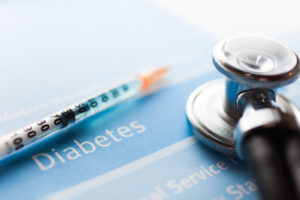Symptoms and Treatments for Dry Mouth in the Elderly

Discover How Senior Mediation Can Help End Conflicts Over Care
June 26, 2017
Heatstroke Prevention for Elderly Loved Ones
July 10, 2017While most people have experienced dry mouth when nervous, thirsty or embarrassed, the chronic condition of dry mouth is something entirely different. Lots of elderly people suffer from dry mouth and it is often untreated because it seems so minor that family caregivers and elderly people don’t bring it up to their doctor. However, dry mouth can lead to a number of health issues and may even be a sign of a serious illness in the body. When it comes to dry mouth, there’s no reason to put off talking to a doctor.
What is Dry Mouth?
When the salivary glands don’t work well, it can leave a senior’s mouth dry and sticky. Saliva is important to the mouth in processing food, keeping it clean and aiding in speaking and swallowing. Dry mouth in seniors is usually caused by medications they are taking. In older adults, dry mouth is most commonly a side effect of certain medications, including those for blood pressure, allergies, pain, overactive bladder, depression, anxiety and Parkinson’s disease, just to name a few. Dry mouth is also a symptom of other conditions like diabetes or HIV.
What are the Symptoms of Dry Mouth?
Many seniors describe dry mouth as the dryness and sticky feeling when they try to swallow or talk. Other symptoms may be thicker saliva, burning in the throat when eating and a hoarse voice. Choking on food is common in seniors with dry mouth, as is difficulty swallowing. Often, elderly people will experience chapped, cracked lips and sores at the side of the mouth.
Other symptoms of dry mouth include bad breath and high levels of gum disease and tooth decay. That’s because there isn’t enough saliva to keep the teeth free from food debris and rid the mouth of fungus or bacteria. Far too many seniors, family caregivers and home health care assistants simply attribute dry mouth to just being a part of aging, but there’s no reason an elderly person has to suffer.
Treatments for Dry Mouth
The best way to treat dry mouth is for family caregivers to arrange for a doctor’s appointment for their aging loved one. The doctor will be able to figure out what is causing the dry mouth, and then explain the proper treatment. Sometimes, it’s as simple as switching medications to something that won’t have dry mouth as a side effect. Other times, there may be a yet undiagnosed medical condition that is causing the dry mouth that the doctor can then treat. The doctor can also assess whether or not the salivary glands are working and what might be causing problems with them.
Seniors can get relief from the symptoms of dry mouth in several ways. Their doctor may prescribe medicine that helps to stimulate the salivary glands into being more productive. Elderly people should also drink plenty of water and sleep with a humidifier to moisten the air. Chewing gum and sucking on hard candy can also make the mouth more moist. Home health care aides can help seniors avoid hot and caffeinated drinks, which can dry out the mouth. Smoking exacerbates dry mouth and aggravates symptoms.
There’s no reason to ignore dry mouth when an elderly loved one is suffering from it. Observant family caregivers and home health care assistants can play close attention to see whether or not the elderly loved one is showing the symptoms of dry mouth. Then, they’ll be able to get the help they need to overcome it.



